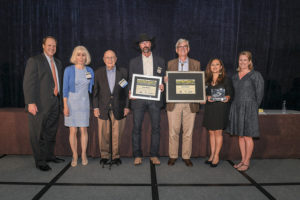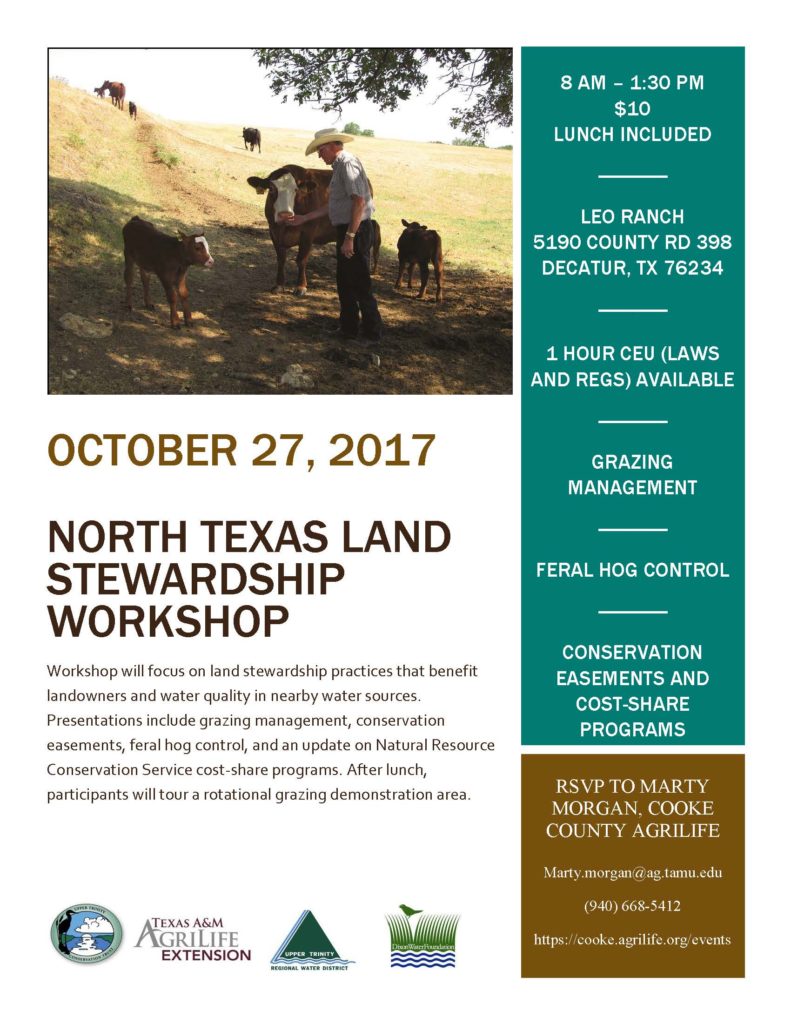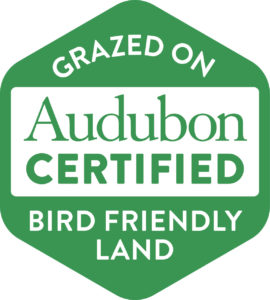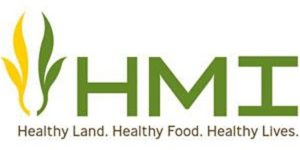VoyageDallas just posted a profile of our very own Melissa Bookhout.
NEWS & EVENTS
Healing Land with Livestock
“This year, the foundation’s hard work gained national recognition by winning Texas’ top conservation honor: the Leopold Conservation Award. The Sand County Foundation, a national nonprofit land conservation organization, presents the $10,000 award to one rancher or organization each year in honor of conservationist Aldo Leopold. Unlike past Texas honorees, the Dixon Water Foundation is not an individual landowner but a nonprofit organization focused on the bigger picture of Texas’ land health.”
Managing Cattle to Improve Watershed Health
Foodtank.com recently posted Texas Ranches Manage Cattle to Improve Habitat and Watershed Health, an edited excerpt from Replenish: The Virtuous Cycle of Water and Prosperity by Sandra Postel, published by Island Press.
Overview of Research Projects Funded by Dixon Water Foundation
The research of Dr. Richard Teague has been supported by the Dixon Water Foundation for many years. The following is a list of projects and papers by Dr. Teague that have received Dixon Water Foundation funding. (Please also see our Resources pages for links to more of Dr. Teague’s publications.)
DIXON WATER FOUNDATION LIST OF FUNDED PROJECTS
Richard Teague, Texas A&M AgriLife Research, Box 1658 Vernon, TX 76384
1. The Hydrological Effects of Intensive Grazing Systems
Title: Grazing management impacts on vegetation, soil biota and soil chemical, physical and hydrological properties in tall grass prairie
Papers:
2011. Teague, W.R., Dowhower, S.L., Baker, S.A., Haile, N., DeLaune, P.B., Conover, D.M. Grazing management impacts on vegetation, soil biota and soil chemical, physical and hydrological properties in tall grass prairie. Agriculture Ecosystems and Environment 141:310-22.
2013. Norton, B.E., Barnes, M., Teague, R. Grazing management can improve livestock distribution. Rangelands 35:45-51.
2013. Provenza, F., Pringle, H., Revell, D., Bray, N., Hines, C., Teague, R., Steffens, T., Barnes, M. Complex Creative Systems: Principles, Processes, and Practices of Transformation. Rangelands 35:6-13.
2013. Teague, W.R., Provenza, F., Kreuter, U.P., Steffens, T., Barnes, M. Multi-paddock grazing on rangelands: Why the perceptual dichotomy between research results and rancher experience? Journal of Environmental Management 128:699-717.
2014. Sacks, A.D., Richard Teague, Fred Provenza, Seth Itzkan, Jim Laurie. Restoring Atmospheric Carbon Dioxide to Pre-Industrial Levels: Re-establishing the Evolutionary Grassland-Grazer Relationship. In: Geotherapy, Edited by Thomas Goreau. CRC Press. pp. 155-194.
2015. Teague, W.R. Toward restoration of ecosystem function and livelihoods on grazed agroecosystems. Crop Science 55:1-7.
2015. Teague, R., Grant, W., Wang, H. 2014. Assessing optimal configurations of multi-paddock grazing strategies in tallgrass prairie using a simulation model. Journal of Environmental Management 150:262-273.
2016. Teague, W.R., S. Apfelbaum, R. Lal, U.P. Kreuter, J. Rowntree, C.A. Davies, R. Conser, M. Rasmussen, J. Hatfield, T. Wang, F. Wang, P. Byck. The role of ruminants in reducing agriculture’s carbon footprint in North America. Journal of Soil and Water Conservation 72:156-164.
2016. Teague, W.R. Bridging the Research Management Gap to Restore Ecosystem Function and Social Resilience. In: Global Soil Security Conference, College Station, Texas. (Eds) Alex McBratney, Christine Morgan & Andrea Koch. pp. 341-350.
2017. Teague R., and Barnes, M. 2017. Grazing management that regenerates ecosystem function and grazing land livelihoods. African Journal of Range and Forage Science 34:77-85.
2. Restore Big Bluestem Using Planned Grazing
Title: Dynamics of tallgrasses to native tallgrass prairie using adaptive multi-paddock grazing
Papers: In preparation. Final analyses being conducted now to be submitted to journal in 2018.
3. Compost Tea Evaluation – Lake Lewisville Education Area – Abandoned
New Title: Grazing Management Impacts on Greenhouse Gas Emissions from Soil (see below)
4. Grazing Management Impacts on Greenhouse Gas Emissions from Soil
Papers: In preparation. Final analyses being conducted now to be submitted to journal in 2018.
5. Range Restoration using Planned Grazing – Lake Lewisville Education Area
Title: Using fire and multi-paddock grazing to restore degraded secondary succession tallgrass prairie
Papers: In preparation. Final analyses being conducted now to be submitted to journal in 2018.
6. Watershed Project
Title: Evaluate the impact on water catchment function of using traditional grazing versus multi-paddock grazing in southern tallgrass prairie
Papers:
2017. Park, J., S. Ale, and W.R. Teague. 2016. Simulated water quality effects of alternate grazing management practices at the ranch and watershed scales. Ecological Modeling 360:1-13.
2017. Park, J.Y., S. Ale, W.R. Teague, and J. Jeong. 2016. Evaluating the ranch watershed scale impacts of using traditional and adaptive multi-paddock grazing on runoff, sediment, and nutrient losses in North Texas. Agriculture, Ecosystems and Environment 240: 32-44.
2017. Park, J., S. Ale, W.R. Teague, and S.L. Dowhower. Simulating hydrologic responses to alternate grazing management practices at the ranch and watershed scales. Journal of Soil and Water Conservation 72:102-121.
7. Life Cycle Assessment
Title: Evaluate long-term economic consequences of using traditional and multi-paddock grazing in southern tallgrass prairie using Life-Cycle-Analysis
Papers:
2013. Wang, T., S.C. Park, S. Bevers, R. Teague, and J. Cho. 2013. Factors affecting Cow-Calf Herd Performance and Greenhouse Gas Emissions. Journal of Agricultural and Resource Economics 38(3):435-456.
2015. Wang, T., Teague, W.R., Park, S.C., Bevers, S. GHG mitigation potential of different grazing strategies in the United States Southern Great Plains. Sustainability 7:13500-13521.
2016. Rowntree, J.E., R. Ryals, M. DeLonge, W.R. Teague, M. Chiavegato, P. Byck, T. Wang, and S. Xu. 2016. Potential mitigation of Midwest grass-finished beef production emissions with soil carbon sequestration. Future of Food: Journal on Food, Agriculture, and Society 4:31-38.
2016. Wang, T., W.R. Teague, and S.C. Park. Evaluation of Continuous and Multipaddock Grazing on Vegetation and Livestock Performance—a Modeling Approach. Rangeland Ecology and Management 69:457-464.
Land Stewardship Workshop Oct. 27 at Leo Unit
The Dixon Water Foundation is hosting with Upper Trinity Conservation Trust, Texas A&M AgriLife, Upper Trinity Regional Water District a workshop about land stewardship practices that benefit landowners and water quality in nearby water sources. The workshop will be held from 8am to 1:30pm on Oct. 27 at Dixon Ranches Leo Unit near Decatur (PDF: directions to Leo Unit and the pavilion). Presentations include: feral hog control, grazing management, NRCS cost-share programs, conservation easements and a tour of a grazing demonstration area. The workshop costs $10 and includes lunch, as well as 1 hour CEUs (Laws and Regs).
For more info, contact Blake Alldredge at balldredge@utrwd.com or RSVP to Marty Morgan, Cooke County AgriLife: 940-668-5412 or Marty.morgan@ag.tamu.edu.
New resource for teachers
“Understanding Soil Health and Watershed Function” is a new teacher’s workbook by Didi Pershouse, now available as a “sneak preview” for educators preparing their fall lessons. The Dixon Water Foundation supported the production of this resource, which was a joint project of the USDA Natural Resources Conservation Service, the USDA Southern Plains Climate Hub, The Soil Carbon Coalition, and Redlands Community College.
Allen Williams workshop presentations now online
Allen Williams, Ph.D., recently shared his experiences as a consultant, rancher and pioneer in grass-finished beef production during a workshop at Dixon Ranches Leo Unit, co-hosted by the Noble Foundation. Williams offered his perspectives on soil health, adaptive multi-paddock grazing and forage management, high attribute pasture-based meat production, and alternative marketing systems. Presentations from this workshop are now online:
- Grass Fed Beef Genetics & Finishing [ PDF ] [PowerPoint]
- State of Grass Fed Industry [ PDF ] [PowerPoint]
- Adaptive Grazing and Relationship to Soil Health [ PDF ] (36MB)
Williams is a 6th generation family farmer and founding partner of Grass Fed Beef LCC and Grass Fed Insights LLC, and a partner in Joyce Farms, Inc. He has consulted with more than 4,000 farmers and ranchers in the U.S., Canada, Mexico and South America on operations ranging from a few acres to more than one million acres. Williams pioneered many of the early grass-fed protocols and forage finishing techniques, and has spent the last 15 years refining them.
DWF receives Leopold Conservation Award®
The state’s top land conservation award typically goes to a private ranch, but this year the honoree is the Dixon Water Foundation, a North Texas-based nonprofit which manages not one, but six different ranches, all of them devoted to demonstrating how good land management using cattle grazing can lead to more and better water for people and wildlife.
Founded in 1994 by the late Roger Dixon, the Dixon Water Foundation promotes healthy watersheds and sequestration of carbon through regenerative land management to ensure that present and future generations of Texans have the water resources they need. In 2005, the foundation acquired the Bear Creek Ranch in Parker County west of Fort Worth. In 2008, they went west to try their approach in drier soils, acquiring the Mimms Ranch near Marfa. Today the foundation operates six ranches totaling 21,960 acres. Each one utilizes a high intensity/low duration holistic grazing system which mimics the natural effect of large herds of bison which used to migrate through Texas.
On May 18, the foundation received $10,000 along with a Leopold Conservation Award crystal at the 22nd Lone Star Land Steward Awards dinner in Austin. This award is given in honor of renowned conservationist Aldo Leopold, and conferred each year by Sand County Foundation, a nonprofit organization devoted to private land conservation, in partnership with the Texas Parks and Wildlife Department. In Texas, the Leopold Conservation Award program is sponsored by the Lee and Ramona Bass Foundation.

Photo by Texas Parks and Wildlife Dept.
Since 1996, Texas Parks and Wildlife Department has hosted the Lone Star Land Steward Awards to recognize private landowners for habitat management and wildlife conservation. In addition to the statewide Leopold award, multiple eco-region recipients are acknowledged in various parts of the state.
A primary purpose of the award is to elevate outstanding landowners who can serve as a positive example to other ranchers and landowners, and to demonstrate how good land management practices can be both profitable and ecologically sustainable.
“Even though they’re a nonprofit, the Dixon Water Foundation always makes management decisions with the bottom line in mind,” said Justin Dreibelbis, who leads TPWD’s private lands conservation efforts. “If their ranches don’t pay for themselves, the demonstration won’t apply to other landowners.”
And the foundation has demonstrated decades of results, using only one tool: cattle.
“The only tool that we use is cattle, because that’s the tool that’s on the landscape; that’s what most landowners across Texas are using,” said Robert Potts, foundation president. “If you’re ranching for the long-term, this is the way to build the wealth in the land. This is going to be a much more profitable way, we believe, to run a ranch. Because you’re not mining the soil, you’re building the soil. That makes it more resilient during drought, and makes it more productive when you do get rain.”
Alongside its cattle enterprise, the foundation is committed to education, outreach and community service, and its list of these credits goes on and on for pages in the award nomination form. For example, Mimms Ranch serves as an outdoor classroom for K-8 students at Marfa International School. Students study sustainable land management, water quality, soil health, desert plants and animals, and other topics through hands-on activities at the ranch. Similarly, more than 1,200 students from Aledo I.S.D. west of Fort Worth complete field labs at Bear Creek Ranch. From studying how wildlife rebound after drought to pronghorn restoration, the foundation also hosts research projects on its properties in partnership with multiple colleges and universities.
Ultimately, it all comes back to water, which the foundation views as the single most important resource for Texas’ future.
“Lots of people worry about how much rain falls,” Potts said, “but what really matters is how much rain gets in the ground. That’s the rain you can use. The rain that runs off, that creates flash floods, that erodes creek banks, that silts up reservoirs — that doesn’t do you any good.”
“What’s easy to happen in these drier environments is that you lose the ground cover, and when that happens you end up with bare ground, and when you have bare ground it’s like not having skin on the earth,” Potts explained. “So we’ve been really pleased that we’ve been able to bring back a lot of the native cover with low grasses like curly mesquite interspersed with bunch grasses like blue gramma.”
“By owning these ranches and being able to raise and sell cattle and support the economics of the enterprise, we’re also able to build wealth in the soil. We’re able to build micro-life in the soil, sequester carbon in the soil, create healthier forage, and then that pays dividends over a long period of time.”
Kids on the Land returns to Josey Pavilion
Kids on the Land returned to Dixon Ranches Leo Unit in April. Kids on the Land outdoor environmental programs teach children about the region where they live, connecting them to the land and a more sustainable future. The foundation’s education partners, like Kids on the Land, frequently visit Dixon Ranches for field days to learn about sustainable land management, watershed health, wildlife, native plants, and other subjects. Learn more about school field programs on this page, and check out the gallery below for glimpses into the fun Kids on the Land brought to the Josey Pavilion this spring.
Study affirms adaptive grazing’s water benefits
Adaptive multi-paddock grazing enhances water conservation and protects water quality, according to a recent Texas AgriLife study published in Agriculture, Ecosystems & Environment.
“We found grazing management practices do have a significant influence on ecosystem services provided by rangelands,” said co-author Dr. Srinivasulu Ale, a geospatial hydrology associate professor. “Not only did the multi-paddock grazing practice provide several hydrological benefits such as increased soil infiltration, increased water conservation and decreased surface runoff, but also environmental benefits such as water quality improvement.”
Richard Teague, an AgriLife rangelands researcher in Vernon and science advisory board member for the foundation, was another co-author on the study. Teague said the research was designed to help producers assess the hydrologic and water quality impacts of traditional and alternate grazing management practices and identify best management practices for long-term sustainability of rangelands.
The Dixon Water Foundation funded the research project and employs adaptive multi-paddock grazing on Dixon Ranches.
For a summary of the research findings, visit the Texas AgriLife news website. The complete journal article is also available on ScienceDirect: “Evaluating the ranch and watershed scale impacts of using traditional and adaptive multi-paddock grazing on runoff, sediment and nutrient losses in North Texas, USA.”


















